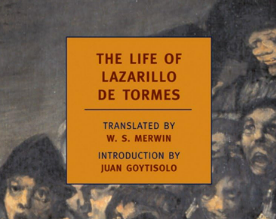Chapter IX: How Lazaro Became a Baggage Carrier
byChapter IX titled “How Lazaro Became a Baggage Carrier” begins with his arrival in Madrid, carrying little more than determination and a hopeful heart. Inspired by advice from a more seasoned rogue, he invests in a porter’s strap and sets out to earn a living through honest labor. His optimism is tangible as he stations himself in the plaza, expecting that the weight of others’ burdens will lift his own misfortune. His first client appears to be a refined young lady, carefully groomed and graceful in her steps. Trusting her exterior, Lazaro follows without question, winding through alleys and corners until they arrive at a suspiciously quiet house. Only after entering does he realize that the woman belongs to a brothel, and he has unknowingly crossed into the margins of society’s hidden world.
As the woman settles in, she offers Lazaro a glimpse into her turbulent past. Her life has not been her own—it has been directed by men who saw in her not a person, but a resource. From a false start with a cleric in Seville to her time spent under the control of “guardians,” she reveals a path shaped by manipulation and traded favor. Lazaro listens, unsure if her story is meant to justify, manipulate, or simply fill the silence. When the time comes for his pay, he is caught off guard. She denies owing him anything, claiming a misunderstanding, and quickly turns aggressive. In moments, others arrive, and Lazaro finds himself shoved out the door with bruises instead of coins. The lesson is sharp: trust placed in appearances or politeness often leads to regret.
Refusing to let one misfortune end his efforts, Lazaro accepts a new task—this time from a Franciscan friar. He is asked to carry a bundle to a nearby monastery, and though weary, the promise of payment stirs his strength. The friar speaks kindly, masking expectations in religious vocabulary, and Lazaro begins the difficult journey. The load is heavy, each step driven by the hope that, this time, effort will meet reward. When they reach the monastery, however, Lazaro is met not with thanks or coin, but a pious sermon. The friar assures him that while earthly wages may lack, his reward will be great in heaven. The words are empty to Lazaro, who stands there aching and again unpaid, his stomach no fuller than before.
The dual encounters serve as a painful awakening to the cruelty hidden behind respectable masks. Lazaro’s labor, whether for the body or the spirit, is dismissed by those who exploit trust without consequence. The woman in the brothel and the friar in the monastery reflect two ends of society—one shunned and one revered—yet both take without giving, leaving Lazaro trapped between deception and sanctimony. Still, he does not give up. His hope endures, not out of blind faith, but from necessity. Each defeat adds a layer to his growing skepticism, shaping him into someone who no longer accepts the world at face value.
This chapter highlights how survival often means adjusting expectations, not just of others, but of justice itself. Lazaro begins to understand that honesty, though noble, offers no guarantee of reward. The irony of his labor being met with either aggression or piety deepens his view of how the world functions—not through fairness, but through influence and presentation. The brothel and the monastery, though morally opposite, reveal the same truth: labor can be undervalued, whether it’s performed for profit or piety. Lazaro’s growing resilience lies not in wealth or comfort, but in his refusal to let disillusionment crush his spirit.
Readers are offered more than just comic misfortune—they are given insight into the enduring strength it takes to keep moving forward in the face of constant disappointment. Lazaro’s story is not merely about hardship, but about the persistence of dignity when the world tries to strip it away. His voice remains steady, never asking for pity, only sharing what he has lived. Through laughter and bruises, he uncovers truths that speak not just to his time, but to all who have ever worked and waited, only to be met with silence. His journey, though paved with hardship, remains a quiet triumph of will over circumstance.

